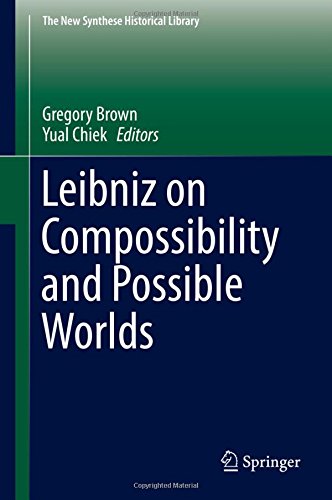

Most ebook files are in PDF format, so you can easily read them using various software such as Foxit Reader or directly on the Google Chrome browser.
Some ebook files are released by publishers in other formats such as .awz, .mobi, .epub, .fb2, etc. You may need to install specific software to read these formats on mobile/PC, such as Calibre.
Please read the tutorial at this link: https://ebookbell.com/faq
We offer FREE conversion to the popular formats you request; however, this may take some time. Therefore, right after payment, please email us, and we will try to provide the service as quickly as possible.
For some exceptional file formats or broken links (if any), please refrain from opening any disputes. Instead, email us first, and we will try to assist within a maximum of 6 hours.
EbookBell Team

4.1
40 reviewsThis volume brings together a number of original articles by leading Leibniz scholars to address the meaning and significance of Leibniz’s notions of compossibility and possible worlds. In order to avoid the conclusion that everything that exists is necessary, or that all possibles are actual, as Spinoza held, Leibniz argued that not all possible substances are compossible, that is, capable of coexisting. In Leibniz’s view, the compossibility relation divides all possible substances into disjoint sets, each of which constitutes a possible world, or a way that God might have created things. For Leibniz, then, it is the compossibility relation that individuates possible worlds; and possible worlds form the objects of God’s choice, from among which he chooses the best for creation. Thus the notions of compossibility and possible worlds are of major significance for Leibniz’s metaphysics, his theodicy, and, ultimately, for his ethics.
Given the fact, however, that none of the approaches to understanding Leibniz’s notions of compossibility and possible words suggested to date have gained universal acceptance, the goal of this book is to gather a body of new papers that explore ways of either refining previous interpretations in light of the objections that have been raised against them, or ways of framing new interpretations that will contribute to a fresh understanding of these key notions in Leibniz’s thought.